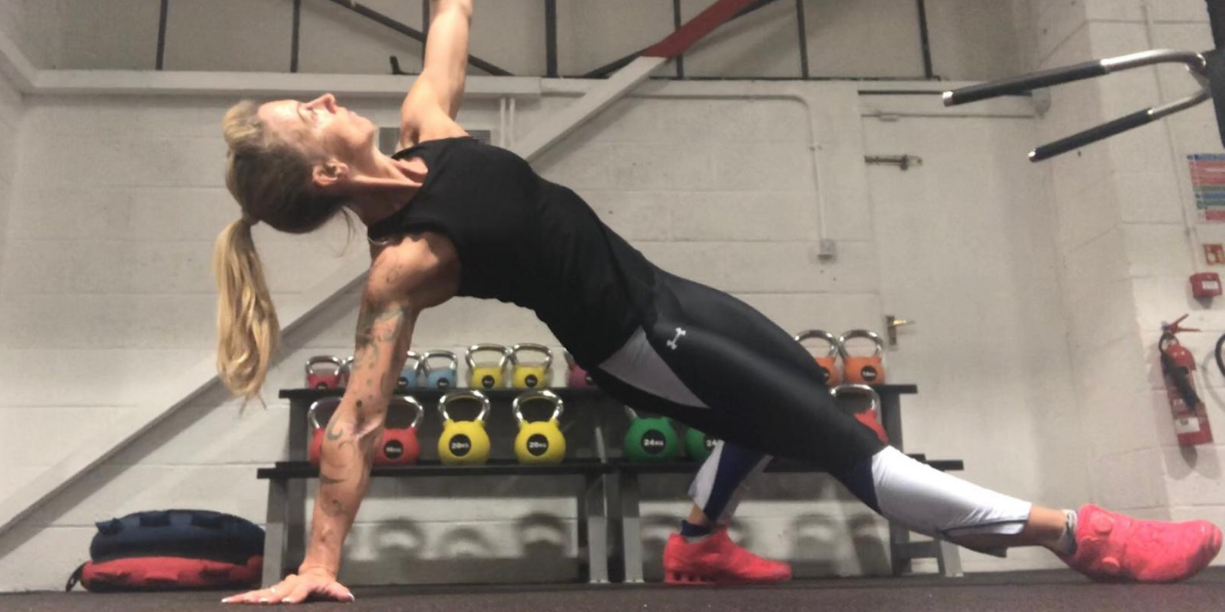



Why the Turkish Get-Up is Essential for Personal Trainers
The Turkish Get-Up (TGU) is a versatile and effective exercise that should be a staple in any personal trainer’s programming. Its ability to engage multiple joints and muscles across various planes of movement makes it incredibly efficient, providing comprehensive benefits from just one exercise.
Full-Body Engagement and Cardiovascular Benefits
The TGU involves numerous joint actions and muscle groups, which can deliver a full-body workout. This exercise can be performed with different equipment, adding variety to your routine. It also offers cardiovascular benefits due to the continuous movement required to transition from lying on the floor to standing and back down again.
Expert Endorsements
Renowned strength coach Dan John advocates for the TGU as a diagnostic tool. He uses a simple test where clients must get down on the floor and stand back up to identify mobility limitations and joint restrictions. This drill is fundamental to daily movement and reveals areas needing improvement before progressing to more dynamic exercises.
Practical Application: Getting Up and Down
Practicing the TGU helps maintain and improve the essential ability to get up from the floor – a skill that can decline with age. This exercise is particularly valuable for older adults, helping prevent the fear and consequences of being unable to get up after a fall.
StrongFirst Kettlebell Workshop Insights
The StrongFirst Kettlebell workshop, led by Pavel Tsatsouline, provides excellent technical training on the TGU. This programme emphasises proper technique and progressive learning, starting without weights and gradually adding load. Investing in quality education from reputable organisations like StrongFirst can significantly enhance your understanding and execution of the TGU.
I recommend you check out his books…
However, I must also make a very special mention 2 of my favourite mentors in the kettlebell, Troy Martin (TM Fitness) & Stephen Aish (The mindset Coaching Academy) , since they have also contributed a lot to my understanding of the use and variations of the kettlebell as an awesome training tool.
The beauty of the TGU is that each part of the movement can be taught one move at a time, without a kettlebell to begin with, particularly if you are coaching a client or trying it for the first time. Once you get going with the combination remember to hold each position for a moment prior to moving on so that you can feel the position and absorb the benefits of that position and that load, at each point.
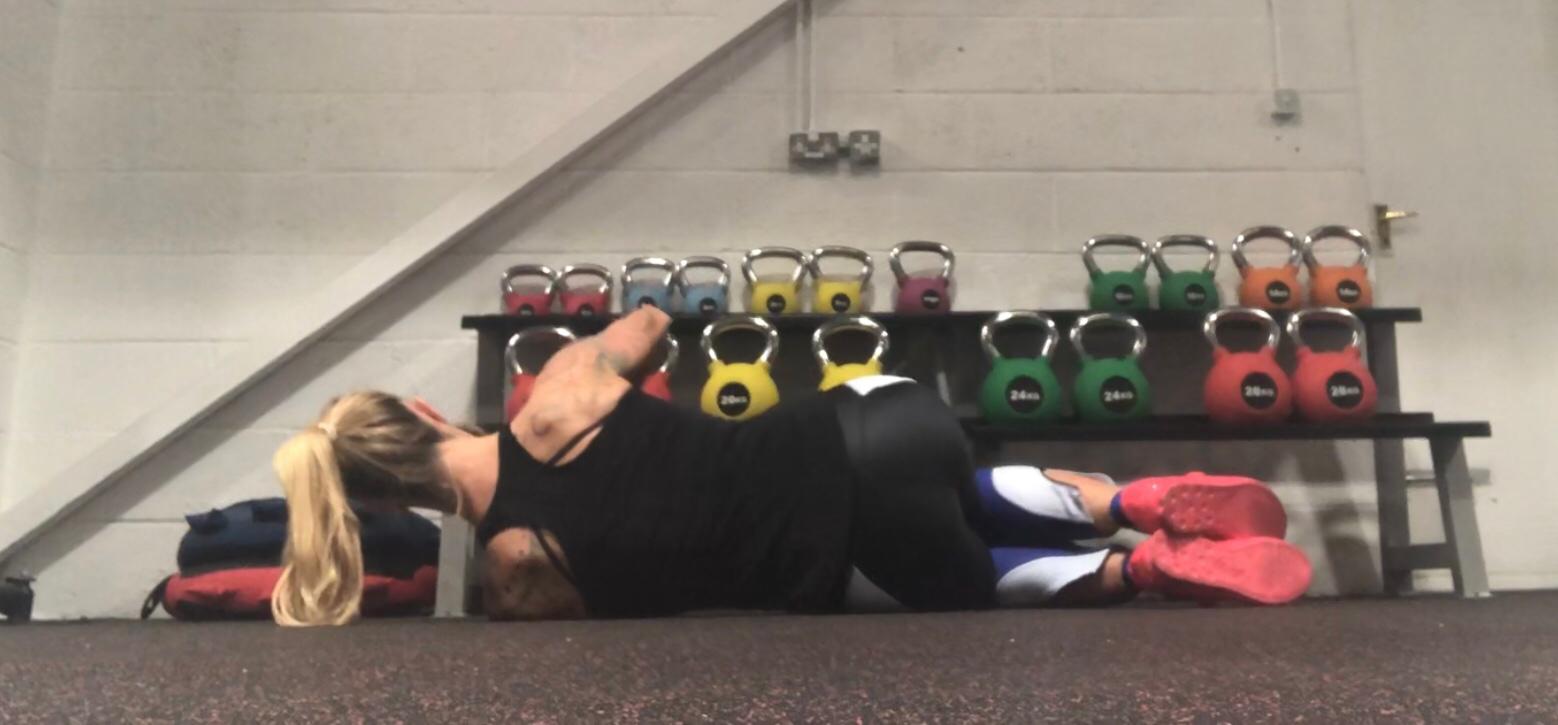
2. Roll to Back: Extend your left arm straight up with the kettlebell resting on the back of your hand. Bend your left knee, foot flat, and extend your right leg.
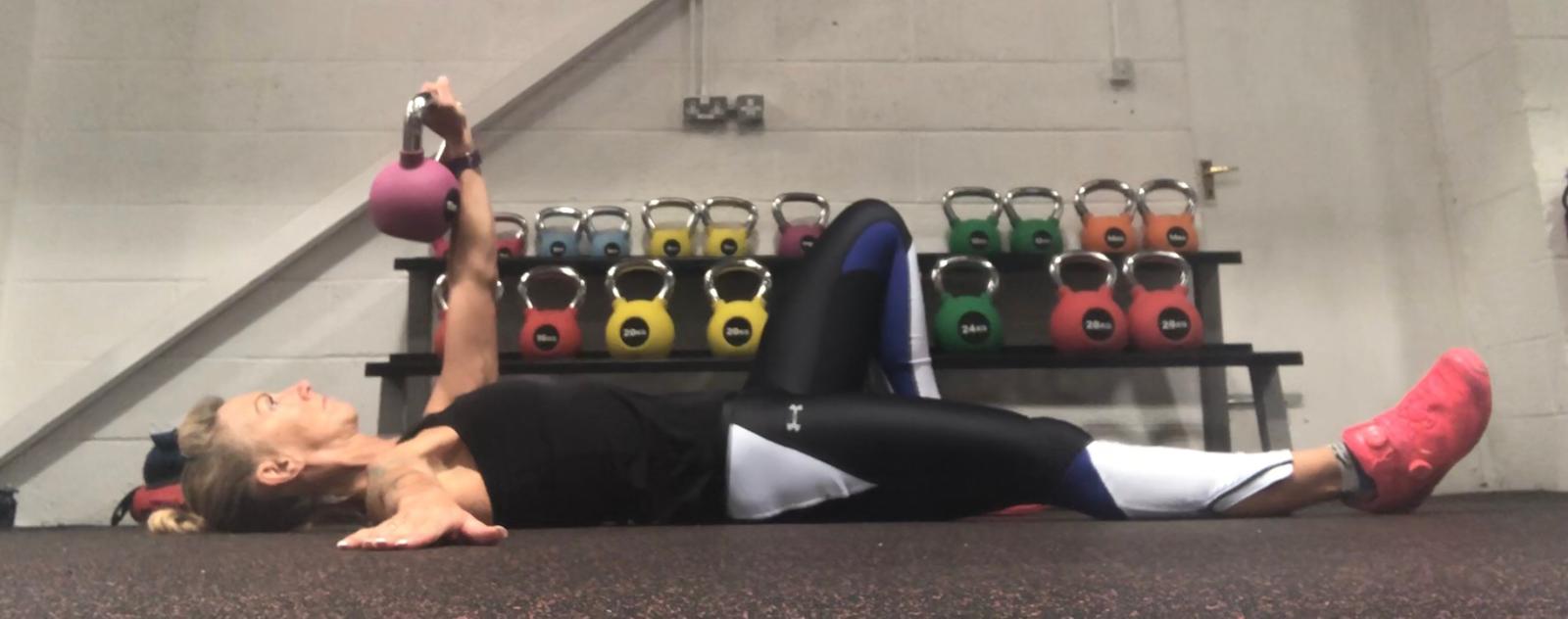
3. Press and Roll: Press the left foot down, engage your trunk, press the kettlebell upwards, and roll onto your right elbow.
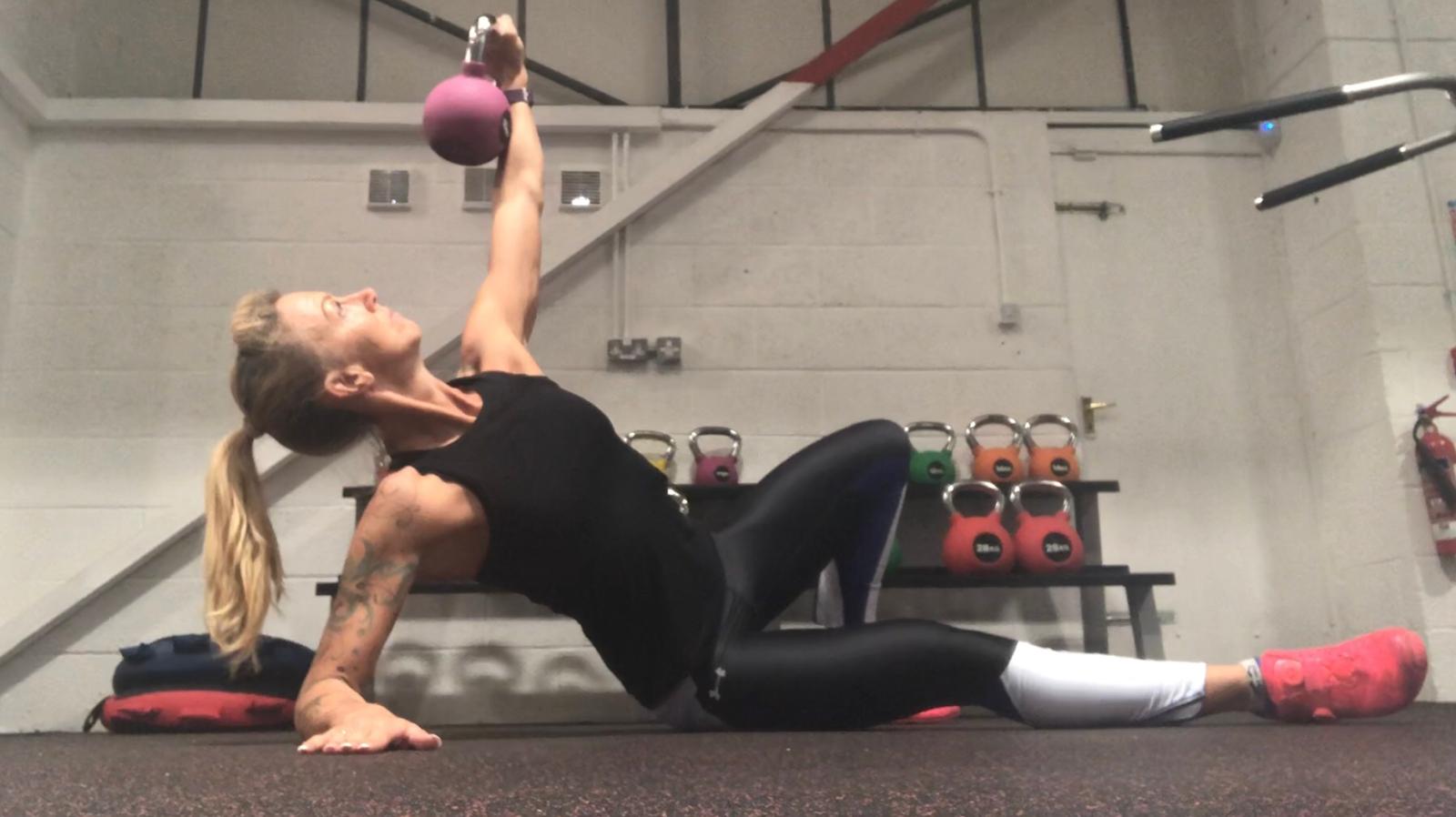
4. Sit-Up: Lift onto your right hand, extending both arms with the kettlebell overhead.
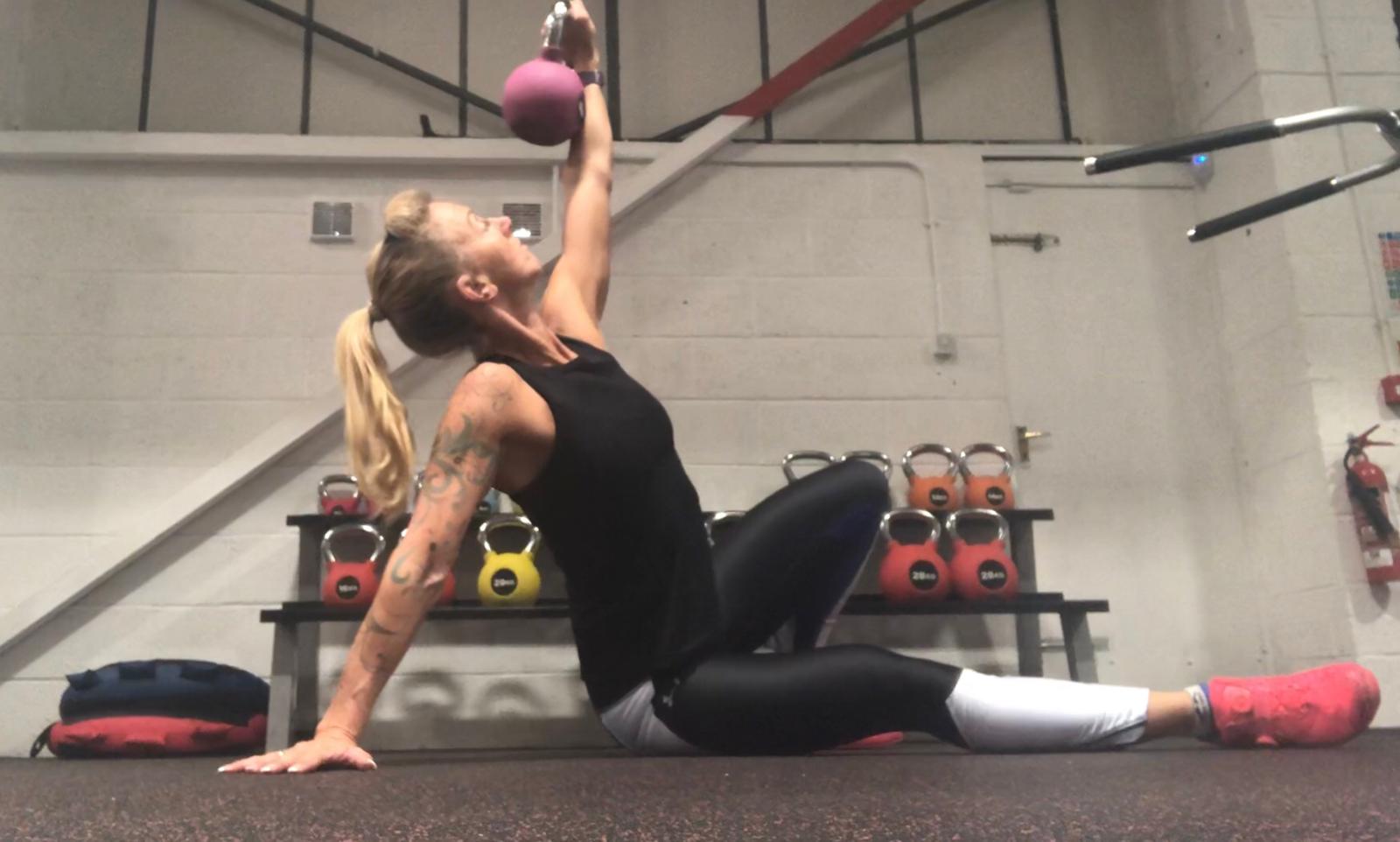
5. Kneel: Shift weight onto the left foot and right hand, moving your right leg to a kneeling position behind you.
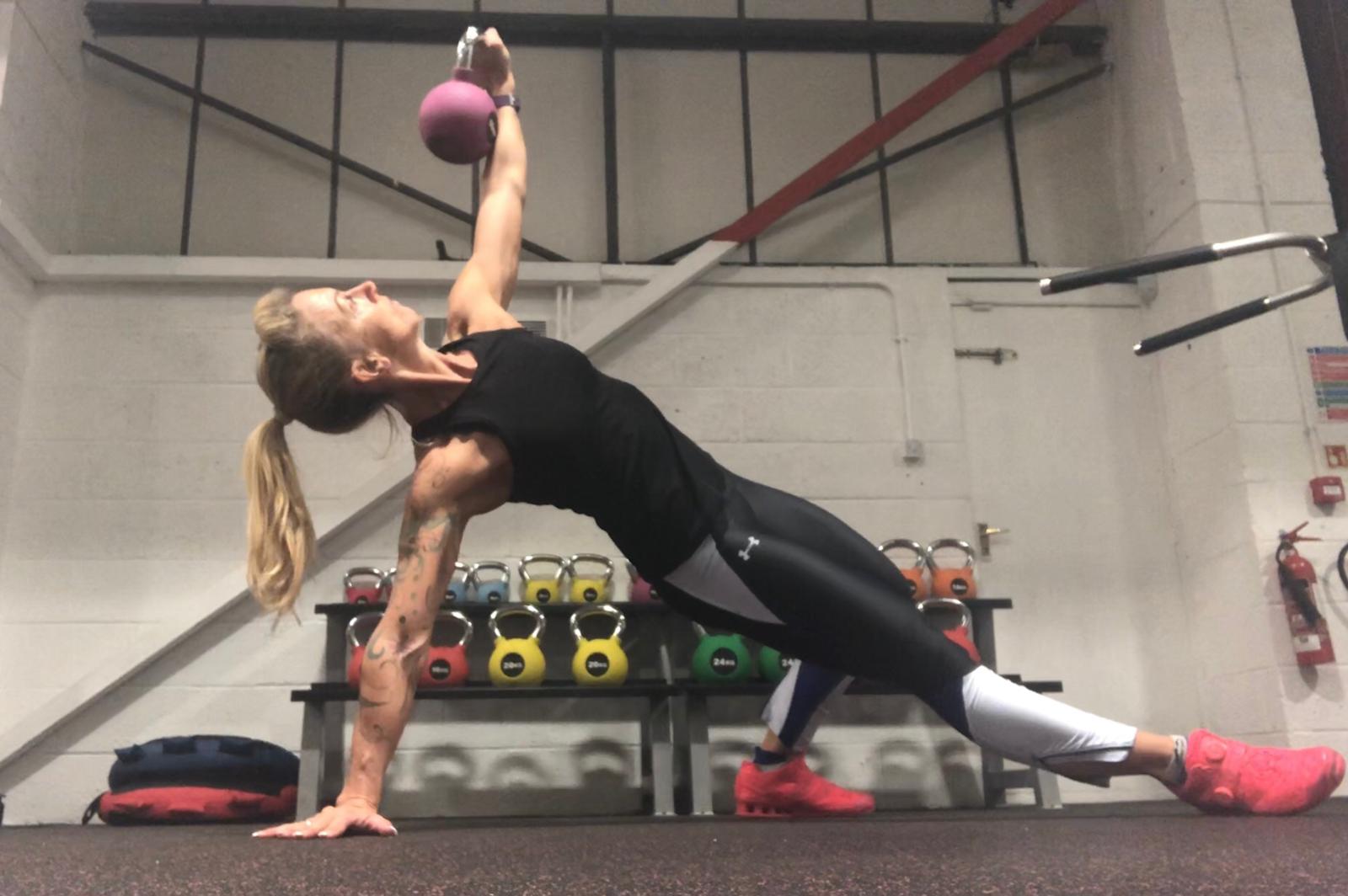
6. Lunge: Move to an upright kneeling position, keeping the kettlebell overhead.
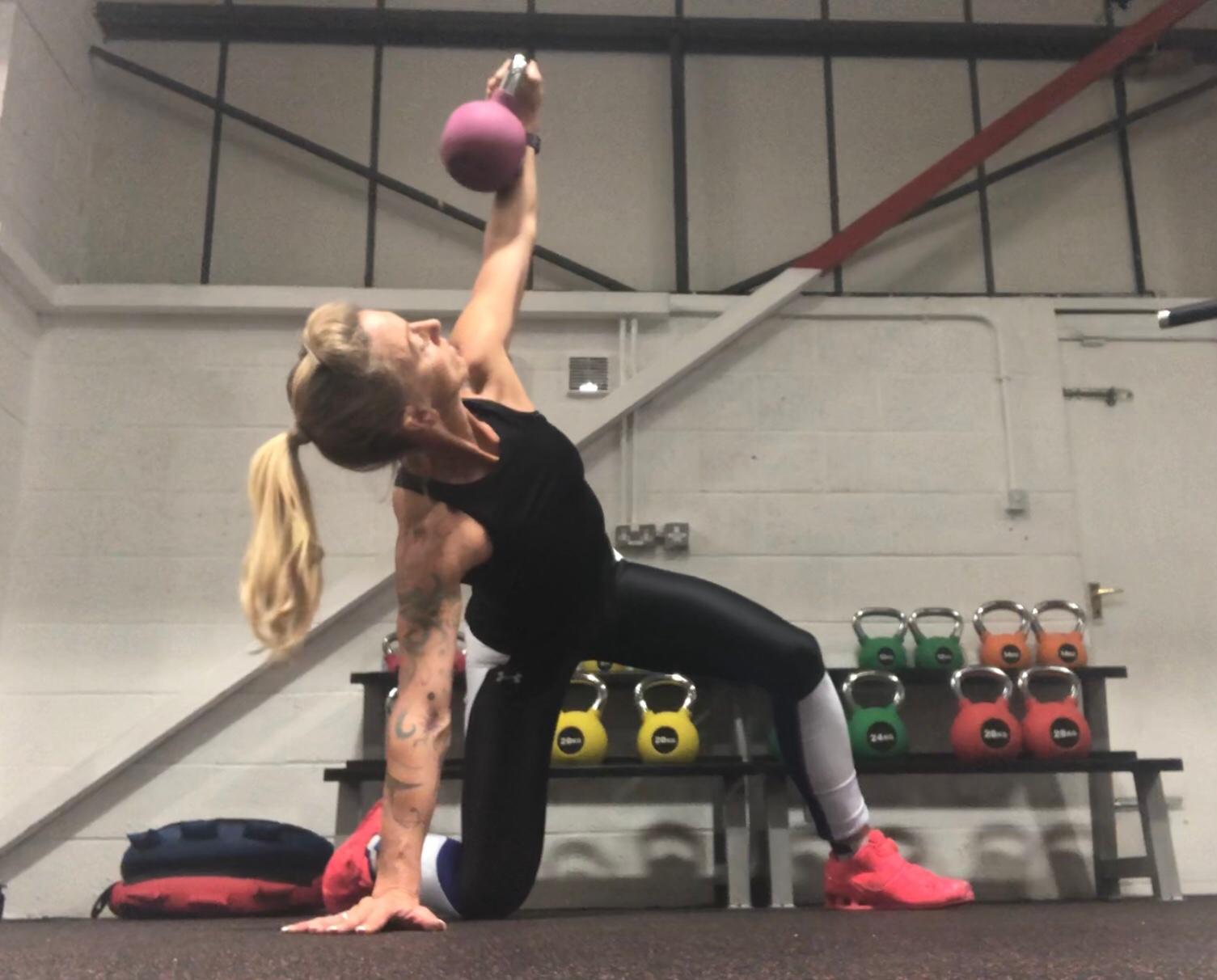
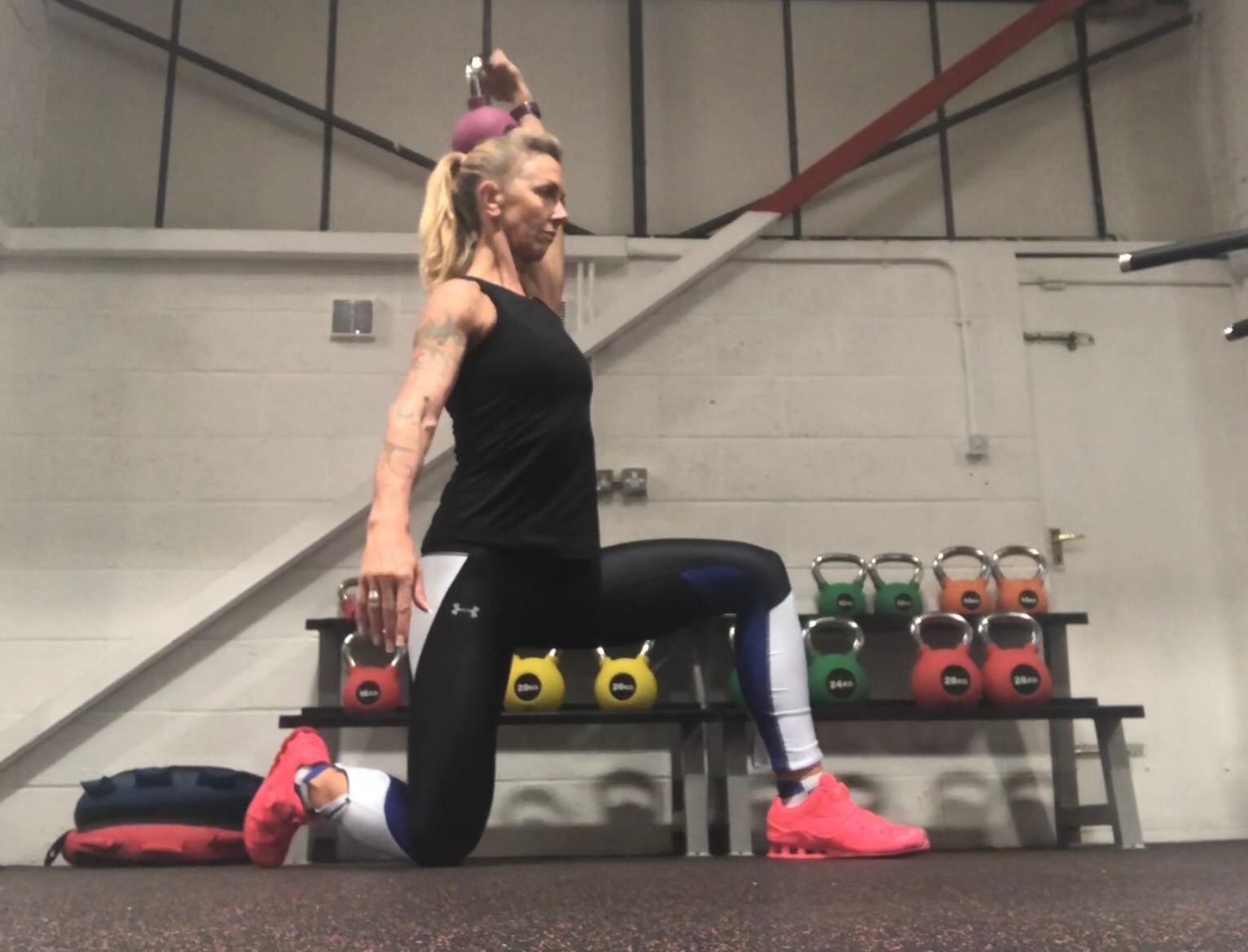
7. Stand: Step your left foot forward and stand up, maintaining the kettlebell overhead.
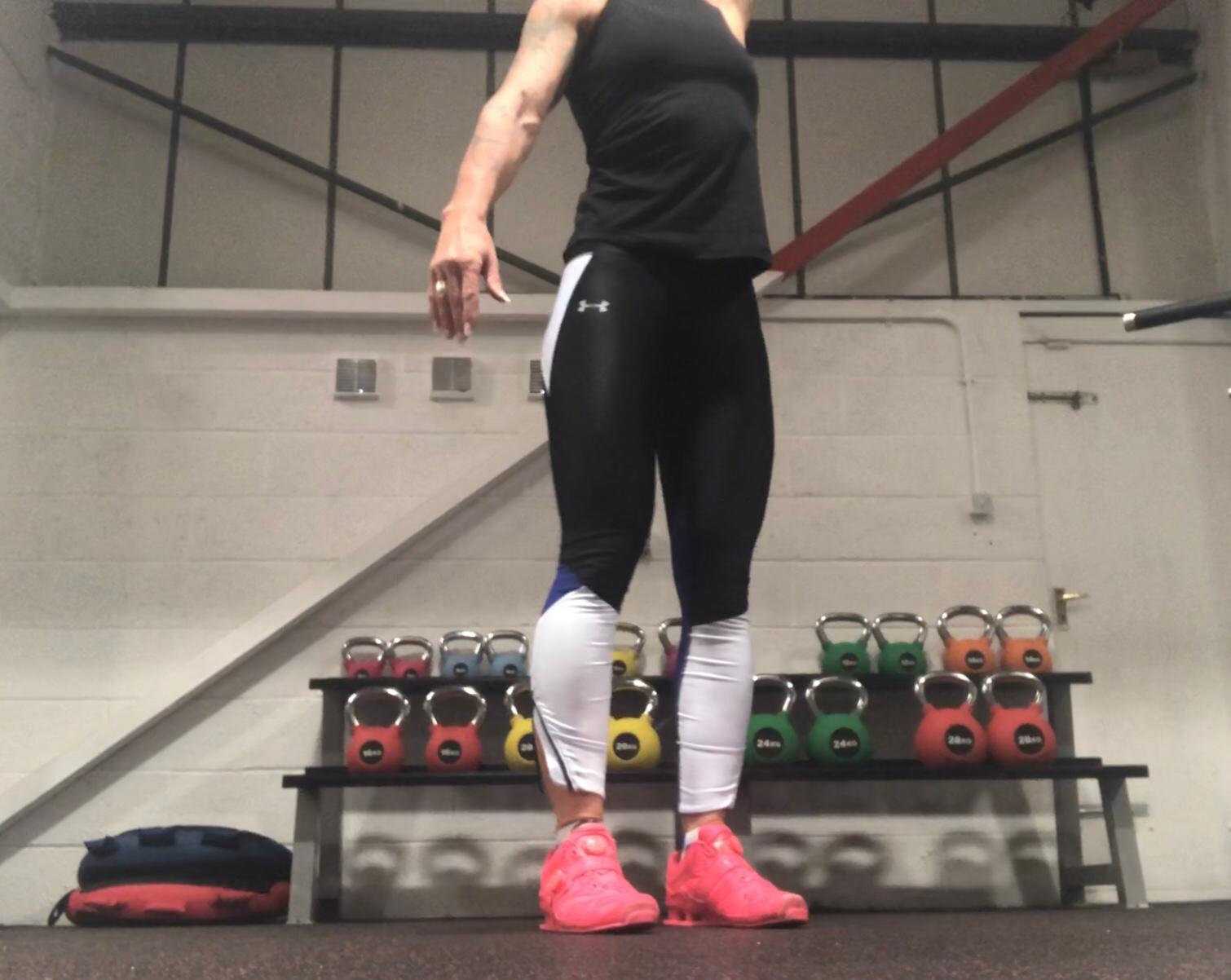
Reversing the Movement
To repeat the movement in reverse it looks like this:
The Switch or Halo
To transition to the other side when using a KB literally drag the KB from the finishing position above, along the floor, in a halo over your head to the same position but on your right side.
Repeat all the above on your right side!
Repeat over and over for a great little cardio strength workout
Then add more kilos… and repeat, repeat, repeat!
Benefits for Personal Trainers
The TGU is not just a strength and conditioning tool but also a movement enhancer, especially beneficial for older adults. It improves the ability to get up from the floor, potentially reducing injury risk and increasing confidence. This exercise is suitable for clients of all ages and fitness levels, making it a valuable addition to any training program.
Enhance Your Training Skills
Want to reduce your clients’ risk of injury and help them achieve better results? Learn more about our Biomechanics Coach Diploma, now including a Level 4 Low Back Pain Qualification, to become an even more effective personal trainer. Click here to find out more.
Contact: info@biomechanicseducation.com
